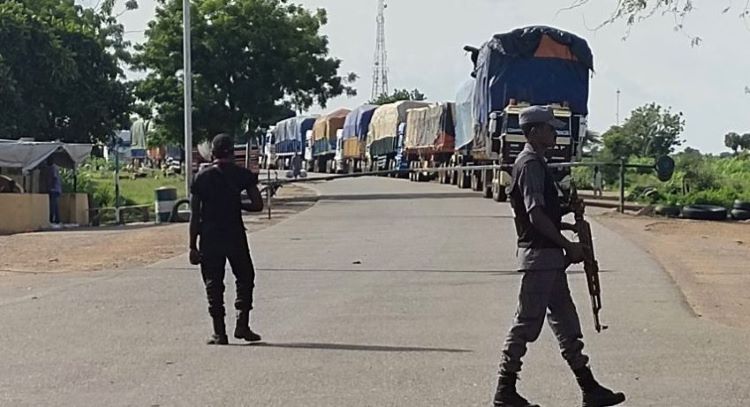MUHAMMAD Badaru Abubakar, the minister of defence has acknowledged that Nigeria’s borders continue to face threats from criminal and terrorist groups — including newly formed ones Lakurawa and Mahmudawa. But, the minister assured citizens that the government is ramping up efforts to secure these borders and bolster national security.
Speaking at the 2025 Ministerial Press Briefing, Abubakar highlighted the ongoing challenges while emphasising the progress made in curbing cross-border infiltration.
Responding to concerns about rising insecurity in regions like Katsina and Zamfara States, the minister pointed to notable improvements, such as the reopening of vital roads and markets in areas like Jibia and Basari.
Despite these advancements, he admitted that some local governments remain under threat and pledged continued military action to reclaim and secure those territories.
Abubakar also acknowledged the growing security challenges Nigeria faces, particularly in the fight against terrorism.
Notably, he highlighted the emergence of new terrorist groups such as Lakurawa and Mahmudawa, adding to the known groups already operating within Nigeria’s borders.
He stressed that the country’s security forces must shift from a reactive to a proactive approach in addressing these threats.
The Ministry of Defence further outlined the nation’s recent strategic successes and the persistent challenges it faces in an increasingly volatile global and regional security environment.
The Minister underscored Nigeria’s commitment to safeguarding its sovereignty while drawing attention to the far-reaching consequences of terrorism, regional instability in the Sahel, and the need for stronger international collaboration.
“As Africa’s most populous nation, Nigeria’s stability is intrinsically linked to that of the continent and the broader global security order.
“The proliferation of transnational threats, including terrorism, cybercrime, and organised crime, has necessitated a rethinking of the country’s defense posture.
“We cannot view Nigeria in isolation. The Sahel, in particular, has become a hotbed for jihadist insurgency, compounded by fragile states, porous borders, and climate-induced displacement”, the Minister said.
According to him, this regional instability has directly affected Nigeria’s northern territories, with armed groups like Boko Haram and the Islamic State in West Africa Province (ISWAP) exploiting weak governance and cross-border networks to fuel their campaigns.
“With over seven Nigerian states sharing borders with Sahelian countries, securing the borders has become a national priority”, he stated.







